About Sanctuary Mental Health & Wellness
At Sanctuary Mental Health and Wellness we offer top-notch, evidence-based individualized treatment plans for men and women experiencing mental health conditions. The staff at our outpatient facility, located in Seymour, Tennessee, are here to help you understand your condition and create a future where you can manage your illness and lead a more fulfilled life.
Our dedicated mental health professionals work with you to create customized treatment plans that include a wide range of options including several different psychotherapy modalities, medications if indicated and experiential treatment. We treat most mental health conditions including alcohol and substance use disorder.
We offer three levels of care including partial hospitalization, intensive outpatient and general outpatient treatment options. Additionally, our clients have access to our case management services. The proper level of care is determined by assessing the severity of your mental health disorder, symptoms, overall physical health and co-occurring addictions. An assessment by our mental health professionals will determine the best level of care for you.
The partial hospitalization program (PHP) is the highest level of care at Sanctuary. This program is designed to provide immersive services during the day while allowing individuals to return home at night. Individuals can expect to participate in individual and group therapy, receive skill-building assistance and work with mental health professionals to determine the best medication regime for their treatment and aftercare planning. PHP typically lasts between one week and three weeks.
The intensive outpatient program (IOP) at Sanctuary offers intensive support in an outpatient setting that is personalized to address your unique needs. These programs meet multiple days per week and include individual and group therapy and focus on skill building and peer support. Typically individuals attend IOP for six to 12 weeks depending on their progress and goals.
Outpatient treatment at Sanctuary is for individuals who have completed more intensive treatment levels or do not need frequent supervision. We’ll show you how to prevent relapse, develop strong coping skills and improve your personal relationships. Individuals typically remain in outpatient treatment, which may include individual and group therapy, for weeks, months or even years. Studies have shown that completing outpatient treatment has a positive impact on long-term recovery.
Former clients at Sanctuary have consistently cited our caring and dedicated staff as the number-one reason why they had such a great experience at our center. They have expressed that they felt truly cared for by our staff and would recommend our facility to family and friends.
We accept most commercial insurance plans. Our admissions professionals can help you understand your benefits and determine if our treatment programs are included in your coverage. We believe in full transparency and will notify you immediately of any out-of-pocket costs or deductibles you can expect. Our facility is a part of the Centric Behavioral Health Company.
Latest Reviews
See AllRehab Score
Gallery
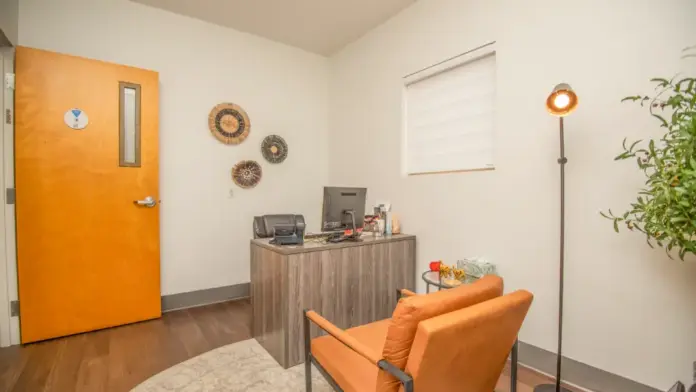
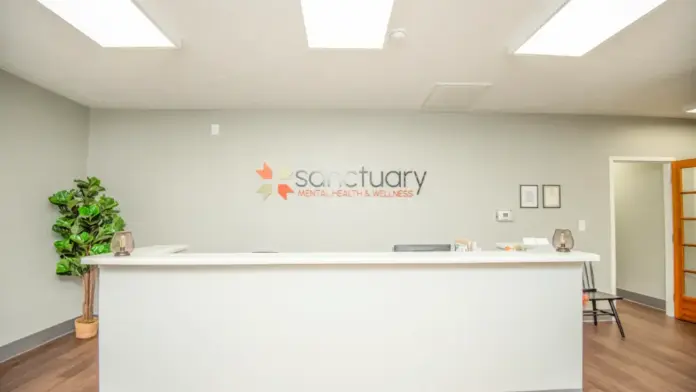
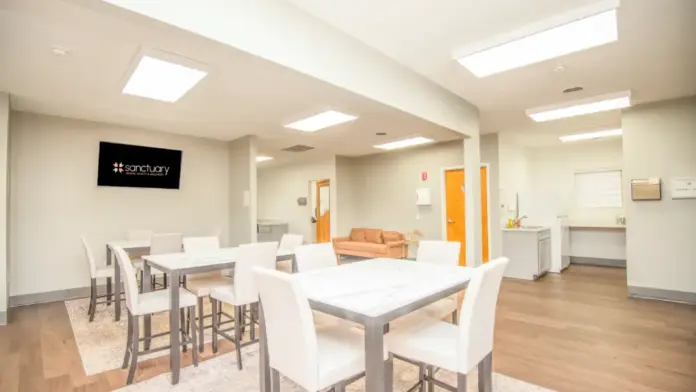
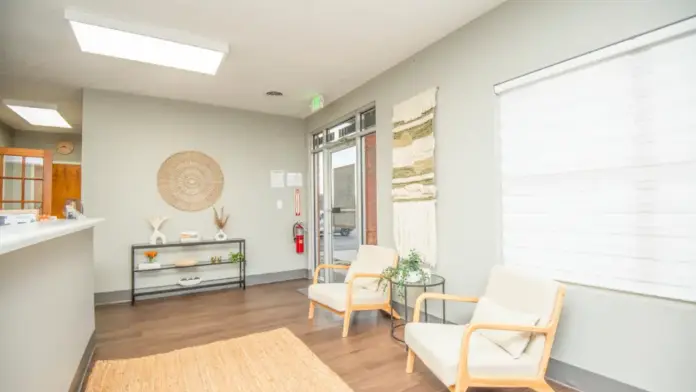
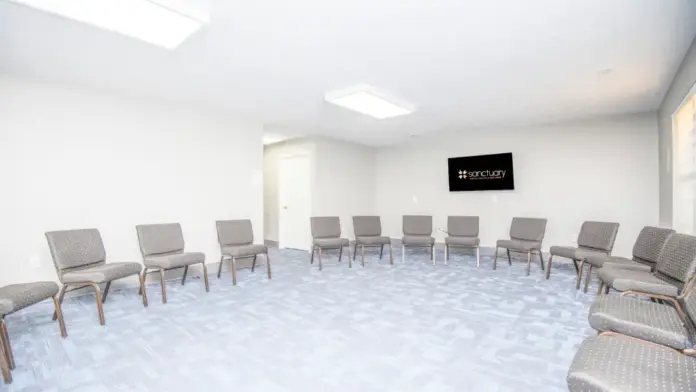
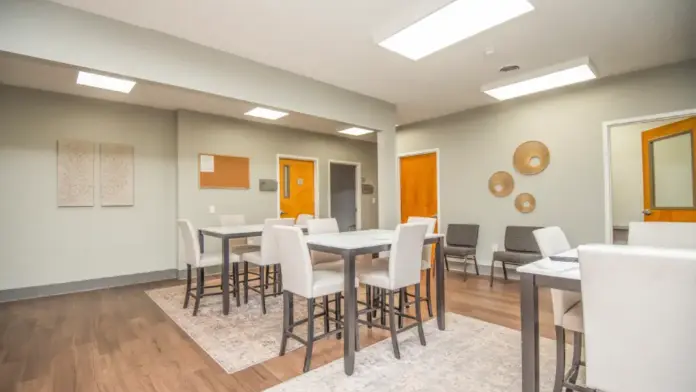
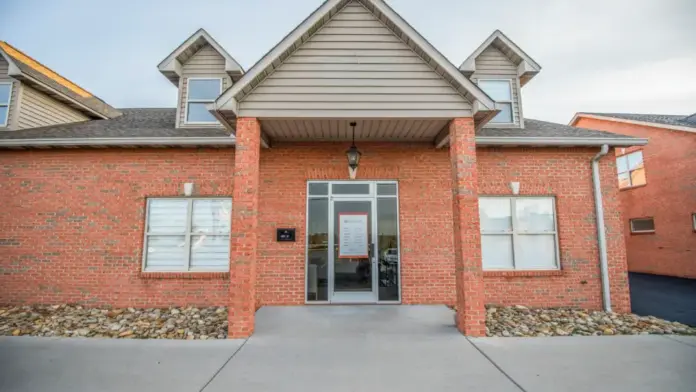
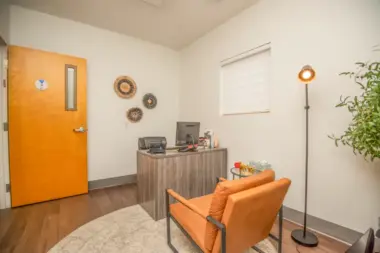
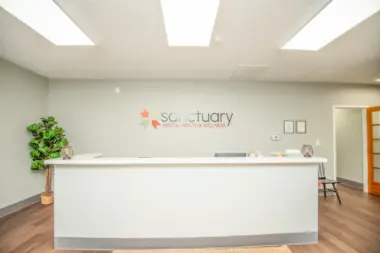
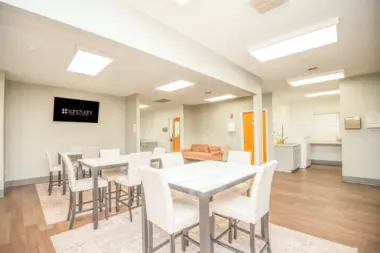
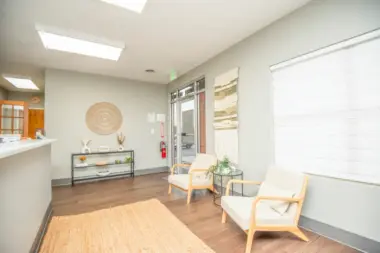
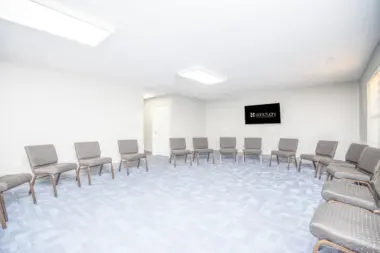
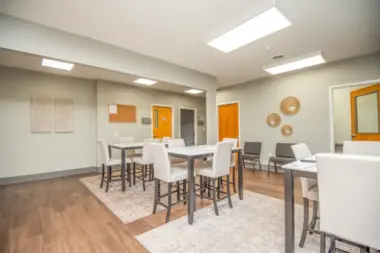
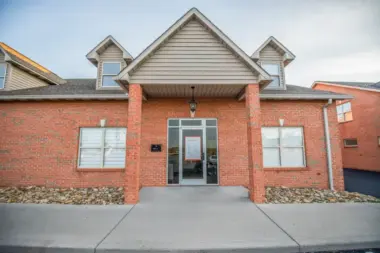
Accepted Insurance




Other Forms of Payment
Self-pay involves paying for treatment out of your own pocket. You can use savings or credit, get a personal loan, or receive help from family and friends to fund your treatment. If you don't have insurance or your insurance plan doesn't cover a specific program, self-pay can help ensure you still get the care you need.
Private insurance refers to any kind of healthcare coverage that isn't from the state or federal government. This includes individual and family plans offered by an employer or purchased from the Insurance Marketplace. Every plan will have different requirements and out of pocket costs so be sure to get the full details before you start treatment.
Addiction Treatments
Levels of Care
The outpatient programs at Sanctuary include addiction treatment for men and women. Our programs include the use of several psychotherapy modalities that help individuals with relapse prevention, goal setting, relationship building and stress management. We offer both individual and group therapy options.
Aftercare Support refers to programming that an individual participates in after completing an inpatient or outpatient alcohol and substance abuse or mental health treatment program. The case managers at Sanctuary can help you plan for life after treatment which may include support related to housing, employment, relationships and relapse prevention.
Intensive outpatient support at Sanctuary is the second highest level of care for mental health treatment including dual diagnosis. Individuals receive immersive care that includes customized treatment plans to address their unique needs. Treatment plans include individual and group therapy that utilizes various psychotherapy modalities, experiential treatment options and medication management when appropriate.
Treatments
Dual Diagnosis refers to an instance where an individual is diagnosed with more than one mental health condition at the same time. Co-occurring conditions can include addiction, anxiety, depression, mood, personality and thought disorders, post-traumatic stress disorder (PTSD) and attention-deficit/hyperactivity disorder (ADHD). Our mental health professionals at Sanctuary are here to help you navigate your condition and provide you with the tools for a brighter future.
Mental health includes your emotional, psychological and social well being. It informs how you handle stress, relate to others and make decisions. At Sanctuary, our mental health professionals are here to help you create a life where the symptoms of your condition can be managed through counseling, medication management and life skill development.
Programs
Adult programs include addiction or mental health treatment for men and women over the age of 18. They focus on factors that impact adult clients like work, family, health and finances. These programs include individual and group therapies that use a variety of different psychotherapy modalities to meet each person’s unique needs and recovery goals.
Young adult programs refer to addiction or mental health treatment programs for people between 18 and 25. These programs recognize that these individuals have unique issues that pertain to school, work, family and social relationships. They are geared toward increasing interaction and creating safe spaces where clients can develop strong coping skills and plan for a future in recovery.
An LGBTQ+ treatment program is designed to meet the specific needs of LGBTQ+ individuals who experience alcohol and substance use disorder or mental health conditions. They recognize the need for strong peer support and acceptance and provide culturally competent services that have been found to increase positive treatment outcomes. They may include a focus on suicide prevention, gender identity support and community resource access.
Clinical Services
In Tennessee, group therapy sessions for drug and alcohol addiction typically involve skill development to help you learn communication techniques and relapse prevention strategies. These strategies support your transition into the community and help you maintain long term sobriety.
Men and women in Tennessee undergoing one on one individual therapy sessions focus on understanding their unique needs and challenges. They do this under the guidance of an experienced therapist who can help you identify and address addiction triggers as well as create personalized relapse prevention plans. This offers you a customized path to a successful recovery journey.
Family therapy uses a structured environment to address the complexities of addiction and the negative influences it has on the family unit. Therapists work with family members to develop effective coping and communication strategies that support their loved one's recovery while also focusing on the health and well being of each family member.
Trauma therapy is a safe place to work through the lingering effects of traumatic events in your life. Your therapist will help you understand the physical and emotional responses that can develop after witnessing or experiencing a traumatic event. You then work toward developing healthier coping mechanisms to reduce your symptoms.
Typical cognitive behavioral therapy in Tennessee involves recognizing negative thinking and learning techniques to change that thinking and create new, positive behaviors. Strategies may include SMART goals, journaling, and situation exposure.
While engaged in couples therapy in Tennessee, you'll learn how to trust, communicate, forgive, and manage emotions. Developing these skills can be beneficial at any time during the relationship, but they are particularly crucial when facing life challenges.
Counseling in Tennessee that takes a dialectical behavior therapy approach can last from six to 12 months. During that time, you'll develop skills in the areas of distress tolerance, mindfulness, emotional regulation, and interpersonal effectiveness.
A wide range of therapeutic methods fall under the category of experiential therapy. Examples include drama therapy, animal assisted therapy, wilderness therapy, music therapy, and martial arts. Each of these offers an experience that allows the individual to express themselves and work through their emotions and experiences.
If you participate in motivational interviewing in Tennessee, your therapist will focus on four key strategies: open questions, affirmation, reflections, and summarizing. Rather than confront or warn you to change, the clinician will allow you to explore your own motivations and decide what changes you may need to make in your life.
Creative arts therapy can be integrated with other therapeutic methods during drug rehab in Tennessee. This treatment can provide unique experiences that allow you to better understand your feelings and experiences. Methods include music, art, dance, and writing therapy.
Amenities
-
Private Setting
-
Residential Setting
-
Hiking
-
Mountain Views
Accreditations

LegitScript has reviewed Sanctuary Mental Health & Wellness as part of their certification program, and has determined that it meets the LegitScript standards for legality, safety and transparency.
LegitScript verified in
